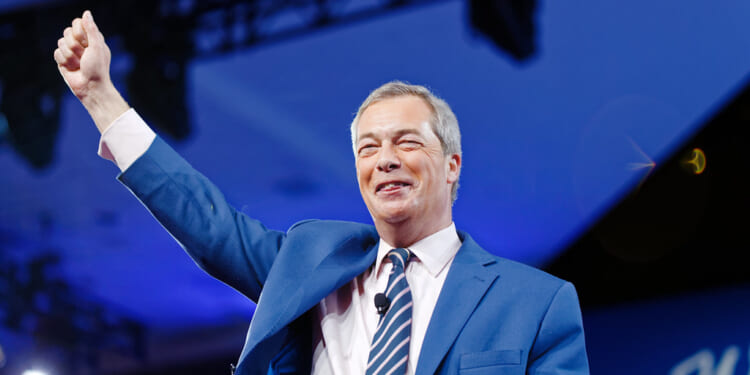Malcolm Cupis is a public relations consultant, strategist and writer. He stood as a Reform UK candidate in the 2024 general Election and was a constituency chairman. He resigned from Reform UK in February 2025 and has joined AdvanceUK.
Political debate has focused intently on the economy over the last few days, as the state of the nation’s finances becomes ever more apparent.
Ever the opportunist, Nigel Farage seized the initiative on this yesterday, with a press conference delivered with much fanfare, duly hailed by his acolytes and those desperate for some faint glowing ember of hope and salvation in ever gloomier skies.
In amongst all the fine rhetoric though, what has Farage actually promised?
When I stood for Reform in the General Election just 16 short months ago, Farage studiously avoided the word “manifesto” and instead opted to publish what he called a contract, which he stated was binding. This contract is still available for scrutiny on Reform’s website.
I campaigned on the promises made in that document – in fact I proudly reasserted them live on radio and television when I took part in the BBC West debate, facing Danny Kruger for the Conservative Party ironically enough.
Those promises included a pledge to cut taxes by £90bn, including lifting the income tax starting rate from £12,500 to £20,000 a year, which would have exempted six million people from paying income tax, raising the threshold for the 40p higher rate from £50,000 to £70,000 and scrapping inheritance tax on estates worth less than £2m.
In his speech yesterday Farage specifically rowed back significantly on these cornerstones of his economic approach and additionally made clear that he would not guarantee the pension triple lock. Fundamentally he then failed to provide any pledges about future economic policy, choosing instead to speak about Reform’s ambitions, in a nebulous manner.
In doing this Farage stated that Reform would focus on reducing spending before contemplating the tax cuts, but obviously could give no guarantee about how long it would take to do this or what his policies would look like in the interim.
The obvious question every potential Reform voter should be asking this morning is how is this any different to what the Conservative Party is promising, or even the Liberal Democrats come to that. Promising tax cuts and future prosperity is easy enough. Words are simple to deliver. Actions are a whole different matter.
This is becoming ever more apparent at a local government level where the councils that Reform now controls are trumpeting the idea that they are uncovering vast savings, whilst apparently uniformly raising council tax, commonly by the highest permitted levels. We have all seen the turnover of Reform Councillors that is taking place alongside this. Just this week there was a high profile defection to the Conservative Party and I’m aware of ever increasing numbers looking towards Advance UK.
There is no doubt that Reform is finding the reality of delivery to be a lot more complex than the application of rhetoric.
The change of policy that is taking place is directly related to all of this. Farage can fairly point to the desperate economic situation that the Labour Party has managed to craft for the nation in 16 months, but that was always going to be the case and he would have been well aware of what was to happen when he drew up the contract/manifesto ahead of the general election. It was obvious that Reform was not going to win, so why make promises that he was unable to keep and which any half competent economic forecaster could have advised would be obsolete within months of a Labour government?
I think the simple answer is that those promises were not made from an informed position and Reform is now struggling to face economic realities whilst maintaining the position that has led to such a rapid rise in its support and which has given British people the sense that they represent something different from the uniparty.
Reform now has not only taken on Parliamentarians, donators and supporters chiefly from the Conservative Party, it is increasingly also taking on its position and its policies. It is becoming harder and harder to make the argument that in the most significant respects; Reform offers anything significantly different at all.
The bitter punchline is that the structure of Reform dictates that its members, candidates, officers and Councillors get no say in these policies at all.
They are handed down by Farage and by Zia Yusuf, whose formal title is now Head of Policy. Opinions are actively discouraged.
You are required to obey and not question. And it is this authoritarianism at the heart of the policy that is a critical component of the turnover of Councillors and Officers.











![Florida Officer Shot Twice in the Face During Service Call; Suspect Killed [WATCH]](https://www.right2024.com/wp-content/uploads/2025/12/Inmate-Escapes-Atlanta-Hospital-After-Suicide-Attempt-Steals-SUV-Handgun-350x250.jpg)





